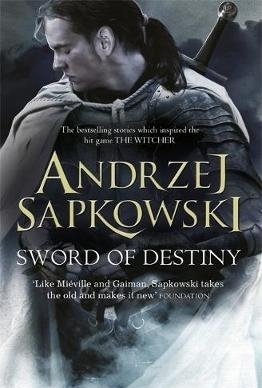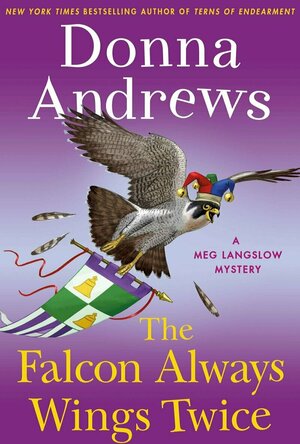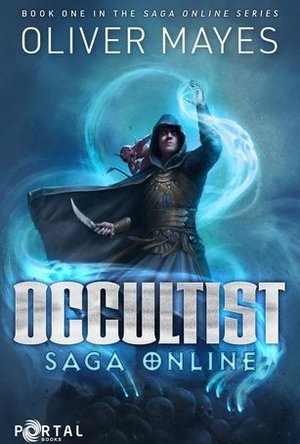
iHunter Ontario
Sports and Utilities
App
Don't be confused by imitators. iHunter Ontario is the #1 Hunting app for Ontario hunters! iHunter...
Matthew Krueger (10051 KP) rated Remember the Titans (2000) in Movies
Nov 28, 2020
The plot: In Virginia, high school football is a way of life, an institution revered, each game celebrated more lavishly than Christmas, each playoff distinguished more grandly than any national holiday. And with such recognition, comes powerful emotions. In 1971 high school football was everything to the people of Alexandria. But when the local school board was forced to integrate an all black school with an all white school, the very foundation of football's great tradition was put to the test.
Its excellent.
David McK (3687 KP) rated Sword of Destiny in Books
Sep 1, 2019
As most gamers will know by now (Witcher III, anyone?), Geralt is a Witcher, who makes his living by hunting Monsters but who also follows his own moral code. While I've never (yet) played that game, I also know that Netflix have a very-soon-to-be-released series based on the character and his world, starring none other than the current incarnation of Superman (Henry Cavill).
As a result, I decided it might be worth-while reading the source material itself first, starting with The Last Wish and now moving onto this. Both those books are pretty much character studies, introducing some key characters in Geralt's life who I'm sure will play larger roles in the full-length novels.

A Game for Swallows: To Die, to Leave, to Return
Book
When Zeina was born, the civil war in Lebanon had been going on for six years, so it's just a normal...

Number One Chinese Restaurant
Book
The popular Beijing Duck House in Rockville, Maryland has been serving devoted regulars for decades,...
Mark @ Carstairs Considers (2470 KP) rated The Falcon Always Wings Twice in Books
Aug 31, 2020
This entry is the series at the top of its game. The murder may take place a little later than some books, but the time is well spent setting up the suspects and motives. I was hooked before the body dropped and happily followed the investigation after it happened. Everything is wrapped up in a climax that has us on the edge of our seats and makes us laugh. The characters are at their most charming – funny without being annoying. I laughed many times as the pages flew by. All the characters are great, and I found myself tearing up at some of the development we got thanks to some strong sub-plots. Since Meg is a blacksmith (not that we see her doing it much in the series), I’m surprised we haven’t been to a Renaissance Fair with her before, but this entry was well worth the wait.

Rebecca Zamolo
YouTube Channel
Hi, I'm Rebecca Zamolo and I'm part of the real game master network along with Matt & Rebecca and...

Matt and Rebecca
YouTube Channel
Matt and Rebecca Zamolo are part of the real game master network along with Rebecca Zamolo and...
Ross (3284 KP) rated The Occultist in Books
Feb 12, 2019 (Updated Feb 14, 2019)
The LitRPG genre (the best-known example being Ready Player One) is something of a narrow one. There are only a few levers to pull: the main character's real life scenario, the game mechanics, the main character's chosen "class" in-game and the conflicts therein.
The Occultist looks to mix this up a bit with the main character choosing a less traditional class, of occultist - that is, he learns the ability to summon a variety of demons and spells/abilities to use with them. This would mark The Occultist out from the crowd, if it weren't for Awaken Online already having done almost the exact same. In AO, Jason chooses a dark class and summons zombies, skeletons etc, and a large part of the early stages of this book really bear a very close resemblance to AO. We have the main character's problems at home, leading him to want to escape into the game, and to find a way to make money from his gaming hobby. The chosen in-game path is almost identical. There is an extremely strong, popular player that he wants to compete with.
From early on, I was thinking this book was a rip-off of AO. But the second half of the book is really where the book marks itself apart from AO. Whereas that book's action was focused on large scale strategy in battles, here we are scurrying around in the background picking players off one by one and there are some truly excellent action sequences, where the abilities and spells learned and the demons at Damien's disposal are used to some really creative effects. Damien looks to get some revenge on his nemesis and also to try and "level up" quickly (again, a key component of LitRPG books), and tries to pick off players as they battle other players, or take on perilous dungeons.
A lot of LitRPG books have had a very immersive gaming element, at times it was more like reading a more traditional fantasy book but where the main character was more clear what he was doing and what skills/abilities he was using. Here you are always aware the character is in a game: he "equips" clothes rather than getting dressed, there is no need for eating or sleeping, what can and can't be done, what you get from killing another character etc is so much more in line with games than in other books. This again marked it out from other books, and gave it a very different feel.
Another major selling point of The Occultist is that it doesn't mess around with time dilation (game time running at a much faster rate than real time). I don't see why so many of the other books in this genre feel the need to build this in, as it is then hard to keep it consistent, and doesn't really feel right or necessary at any time.
Also, Damien's real world troubles take more focus than in other books, as he struggles to find somewhere to live and is on the run.
While the book manages to stick to its own rules (what can and can't be done etc), there is one moment where the main character manages to do something he shouldn't be able to do (his spells have a cool down period before they can be used again and at least once this isn't observed), which was slightly frustrating given how hard the author had tried to plan out the action in line with the people involved and their skills and strengths.
My only real gripe with the book is the title of the game/series - Saga Online, which sounds less like an exciting new MMORPG, and more like the web portal for booking a pensioners' cruise!
In summary, not an original idea (but hard to have such a thing in this genre) but a superbly well told, exciting and fun read. I heartily recommend this to anyone who likes fantasy books, games like the Witcher or just anyone looking for some real fun escapism.




